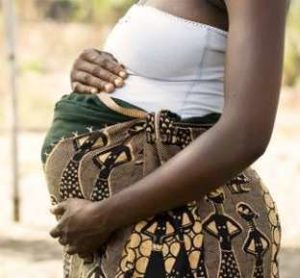Rising teenage pregnancy; NPC warns of dire consequences
 The National Population Council (NPC) has warned of dire socio-economic consequences if pragmatic measures are not taken, to roll back the increasing numbers of teenagers getting pregnant in the Central Region.
The National Population Council (NPC) has warned of dire socio-economic consequences if pragmatic measures are not taken, to roll back the increasing numbers of teenagers getting pregnant in the Central Region.
The Council said it found it deeply worrying that more than 21 per cent of adolescent girls between the ages of 15 and 19 years in the Region, were either pregnant or had a baby.
Mr. Augustine Jongtey, the Regional Officer of NPC, speaking at a public durbar to mark the World Population Day in Cape Coast, said even though most women in the Region want to control births, they equally fail to use contraceptives.
The day, which was instituted by the United Nations General Assembly in 1987, as an advocacy tool to educate people on global population trends, within the context of the Sustainable Development Agenda, was on the theme: “Family planning is a human right, an imperative to sustainable national development.”
Mr. Jongtey said family planning is central to gender equality and women empowerment and a key factor in reducing poverty.
Millions of women globally do not have access to family planning services, a situation inhibiting efforts at reducing poverty among vulnerable individuals, specifically in developing nations.
Planned families, he said, ensured good health and that, children who were properly spaced, stand a greater chance of receiving quality lives.
The NPC therefore called for sustained multi-sectoral collaboration in ensuring that all people of child-bearing age were educated and provided with birth control tools.
Mrs. Agnes Morgue-Duncan, a Nurse from the Ghana Health Service (GHS), said family planning methods were not only there for women but men could also patronize.
Mr. Michael Tagoe, the Regional Project Officer of the Planned Parenthood Association of Ghana (PPAG), called for rigorous sex education for teens to protect them from unwanted pregnancies
He said teenage girls who got pregnant risked additional medical conditions, since their pelvis might not be well developed for child birth.
Lack of access to anti-natal care, the risk of low birth rate coupled with social stigma, are among reasons for criminal abortions.
Source: GNA
